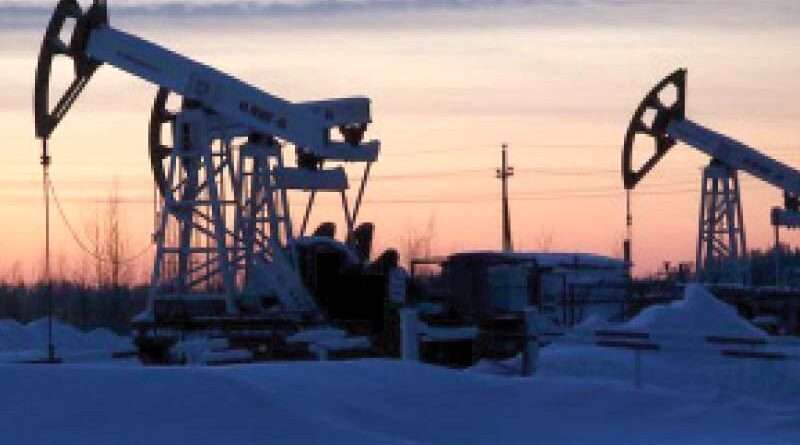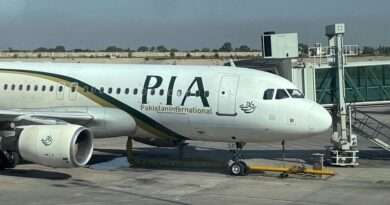Industrial Zone Paralyzed Due to Water Crisis: Karachi’s Major Economic Setback
|
Getting your Trinity Audio player ready...
|
Introduction: The industrial sector in Karachi, particularly the country’s largest industrial zone, is currently experiencing a severe crisis due to a lack of water supply. The ongoing standoff between the Karachi Water and Sewerage Corporation (KW&SC) and private sub-soil water suppliers has led to the suspension of water delivery to the SITE Association of Industry (SAI) for the past four days. With over 4,000 industrial units depending on the continuous supply of water, this disruption has paralyzed production and is threatening the livelihoods of thousands of workers.
This issue has sparked outrage among industrialists, who are calling on the Sindh government, KW&SC, SITE Limited, and Karachi Mayor Barrister Murtaza Wahab to resolve the issue immediately. The economic consequences of this water shortage could be dire, leading to the closure of factories, layoffs, and the cancellation of export orders.
The Water Crisis in Karachi’s Industrial Sector
The Growing Tensions Between KW&SC and Water Suppliers The water crisis in Karachi has worsened as tensions between the Karachi Water and Sewerage Corporation (KW&SC) and private sub-soil water suppliers have escalated. The private suppliers, who play a critical role in ensuring the supply of water to industrial zones, have gone on strike due to alleged pressure from KW&SC officials. The corporation has accused the suppliers of mixing brackish underground water with the regular line water, resulting in the disruption of services. This has caused severe consequences for industries located in the SITE industrial zone.
Impact on Karachi’s Largest Industrial Zone
A Snapshot of SITE Association of Industry (SAI) The SITE Association of Industry is one of Karachi’s most important industrial hubs, housing around 4,000 small and large industrial units. It plays a critical role in Pakistan’s manufacturing sector, contributing significantly to exports and local production. However, due to the ongoing water shortage, these industrial units are facing a complete standstill. The water crisis has rendered workers idle, delayed production timelines, and halted export orders, which could have long-term repercussions for the industry.
Economic Consequences and Industry Concerns
Prolonged Shutdowns and Job Losses The suspension of water supply has led to a severe halt in production activities. Factories have been forced to close their operations, and workers have been left without work. If the situation persists, there are growing fears that businesses will be forced to shut down, which will ultimately lead to mass layoffs. Industrialists are also concerned about the cancellation of export orders, further harming the already fragile economy of the country.
Rising Production Costs and Business Confidence The industrialists’ concerns are further compounded by the rising production costs in Karachi. With the current water crisis, many factories are unable to operate efficiently, which drives up costs and impacts the overall productivity of the sector. This, in turn, erodes business confidence and threatens the survival of businesses in Karachi. The industrialists have expressed their frustration, urging the government to take swift action to resolve the issue.
Water Crisis Impact on Karachi’s Export Sector
Delayed Export Orders and Loss of Business The water shortage has led to significant delays in export orders, a critical aspect of Karachi’s industrial activity. As industries remain closed, they are unable to fulfill their obligations to international clients. This has created a backlog in production, leading to the possibility of losing valuable export contracts. Industrialists have warned that if the issue is not resolved soon, it could have disastrous consequences for the country’s export sector.
Calls for Immediate Government Intervention
Request for Restoration of Water Supply Industrialists have raised their voices, demanding that the Sindh government, KW&SC, and the Karachi Mayor take immediate action to restore the water supply. They argue that the water crisis is not a new issue but has been a persistent problem for a while. The suspension of water to the SITE industries is a major blow to the economy, and without swift intervention, it could have far-reaching consequences for the industrial sector in Karachi.
Accusations Against KW&SC and Private Water Suppliers According to SAI President Ahmed Azeem Alvi, the root cause of the issue lies in the conflict between KW&SC and the private sub-soil water suppliers. These suppliers are responsible for providing water to the industrial zone, but due to accusations of bribery and corruption, they have gone on strike. The industrialists are demanding a fair resolution to the dispute, with both parties urged to work together to restore normalcy in the water supply.
Conclusion:
The water shortage in Karachi’s industrial sector highlights the deep-rooted issues in the city’s water management system. As the largest industrial zone in Pakistan suffers from a complete halt in production, industrialists and workers alike face the consequences of mismanagement and a lack of action from the authorities. The resolution of this crisis is vital for the economy, as it directly affects Karachi’s export potential, industrial activity, and the livelihoods of thousands of workers. The Sindh government, KW&SC, and the Karachi Mayor must come together to resolve the water dispute and ensure that the industrial sector can resume its operations without further disruption.
FAQs
1. What caused the water crisis in Karachi’s industrial zones? The water crisis was triggered by a standoff between the Karachi Water and Sewerage Corporation (KW&SC) and private sub-soil water suppliers. The dispute involved allegations of bribery and corruption, leading to a strike by water suppliers.
2. How has the water shortage affected Karachi’s industrial sector? The water shortage has led to factory closures, halted production, and caused delays in export orders. Thousands of workers have been left idle, and industrialists are considering layoffs due to the ongoing crisis.
3. How long has the water supply been suspended in the SITE industrial zone? The water supply to the SITE Association of Industry (SAI) has been suspended for the past four days, causing significant disruptions in industrial operations.
4. What are the economic consequences of this water crisis? The water shortage has led to rising production costs, delayed exports, and a decline in business confidence. If the situation persists, there is a risk of widespread layoffs and business closures.
5. What measures are industrialists calling for to resolve the water crisis? Industrialists are urging the Sindh government, KW&SC, and the Karachi Mayor to take immediate action to restore the water supply to the industrial zones. They are demanding a fair resolution to the dispute between KW&SC and private water suppliers to prevent further disruption.




